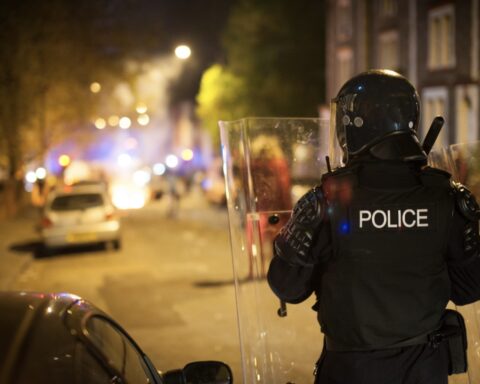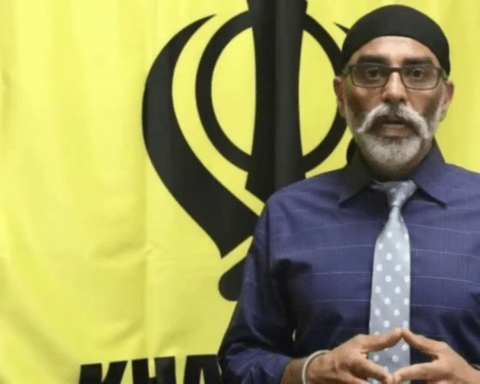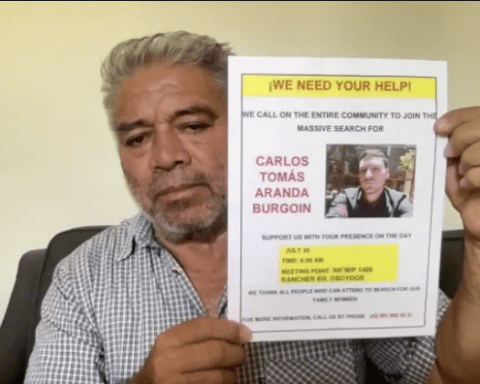Another set of terrorist attacks in the West, another desperate search for answers or explanations or rationale.
A man now in custody, Ahmad Khan Rahami, a naturalized U.S. citizen of Afghan origin, is charged with planting a variety of bombs in Manhattan and New Jersey. The targets selected and venues chosen to hide the explosives are a little bizarre at this point: a dumpster, at the side of a running race. What he was trying to achieve is not clear, at least not yet.
As we learn more about Rahami, we are inundated with the “usual suspects” vis-a-vis why he did this. His family business had a run-in with authorities over opening hours. He had travelled to Pakistan and Afghanistan. He played basketball at the court down the street. He tried to hold his own in neighborhood rap battles. As if any of this explains who he had become and why he acted as he did.
Nevertheless, we soldier on in a fruitless search for “why?” We have this visceral need to understand the motivation of an apparently well-adjusted citizen who one day decides that blowing people up, people who are fellow Americans, is okay. Because if we fail to grasp why we are left with the gnawing doubt that we cannot stop something we cannot predict.
There are always signs
Except that we can, if we apply what we know about how someone goes down the path to violent extremism and act on the signs that are there. As I have said many, many, many times, there are always signs. It is just that for a number of reasons – ignorance, denial, lack of awareness, lack of resources – we don’t always get the information we need in time. Seeing the signs is not a guarantee of a successful disruption, but not seeing them is a guarantee of a successful terrorist operation.
I don’t have a lot of time for armchair quarterbacking and I am tired of pseudo-experts weighing in on what the police and security services should have done in a particular case. And yet once again, as we learn more about Rahami, I find that there were clues that were dismissed or not given enough scrutiny.
Would his acts have been prevented had these breadcrumbs been more fully investigated? Not necessarily. But the refusal, or legal inability, of law enforcement to truly understand what they have before them is becoming a worrisome pattern.
As in the case of the Orlando terrorist Omar Mateen, Rahami had been reported to the FBI, this time by his father. And just as with Mateen, the FBI closed their look into Rahami, concluding he was not a terrorist. In both cases the Bureau was tragically wrong. Yes, hindsight is always 20-20, but I still maintain that in these cases there are textbook signs of violent radicalization.
And it is here that the FBI comes up short, in my professional opinion.
Canadian example
At the risk of alienating my dear friends at the FBI, in the larger U.S. government and indeed across the U.S., I have to say that the American intelligence community needs a drastic overhaul to better be able to deal with cases like these. In a nutshell, the U.S. needs a CSIS (Canadian Security Intelligence Service): a civilian intelligence agency whose job it is to launch investigations based on reasonable grounds to suspect that an individual poses a threat to national security and which gathers intelligence without worrying about evidence or “getting the collar”.
This agency should be tasked primarily with looking at U.S. citizens and will, in effect, be “spying” on them. Just as with the relationship between CSIS and the Royal Canadian Mounted Police (RCMP), the new body will advise the FBI when it has information that points to a criminal act. Oh, and the Americans really need to ditch the distinction between domestic and international terrorism: that train left the station decades ago.
I can already hear the howls of protest from south of the border. You are advocating the criminalization of thought! You are calling for constitutionally protected rights to be subject to investigation! You are turning us into a fascist state. No, no and no. I am merely stating that the U.S. needs an agency that has the legal authority to look at people who are advocating violence BEFORE they do so.
Wrong approach
Waiting until someone is on the verge of acting is ludicrous and it is no wonder that so many attacks have succeeded.
This can be done in ways that honour our freedoms and do not create police states. After all, that is exactly what we are doing in Canada, and, obvious personal biases aside, it is working very well. The U.S. would do well to take a look at what we are doing up here.
Years ago, I spoke with a senior U.S. intelligence official about the differences between our countries and made the argument as to why his needed a CSIS-like entity. He looked at me as if I had two heads and said that under no circumstances would his government, or the U.S. people, countenance such a possibility.
I am sorry to say that he was wrong then and he is wrong now. Until the U.S. comes to the conclusion that a civilian spy service that investigates its fellow citizens is both a necessity and a moral priority I fear that it will continue to misunderstand what is going on in its own backyard.
Phil Gurski worked for more than three decades in Canadian intelligence, including 15 at Canadian Security Intelligence Service (CSIS), and is the author of the Threat from Within and the forthcoming Western Foreign Fighters (Rowan and Littlefield). He blogs at http://www.borealisthreatandrisk.com/blog/
Phil Gurski is a former terrorism analyst at the Canadian Security Intelligence Service (CSIS). He specializes in radicalization and homegrown Al Qaeda/Islamic State/Islamist-inspired extremism and has published several books, including the forthcoming When Religions Kill: how extremists justify violence through faith.” He is a member of New Canadian Media’s board of directors.





